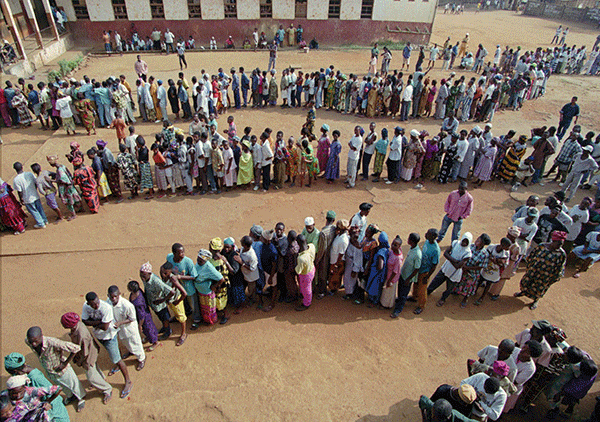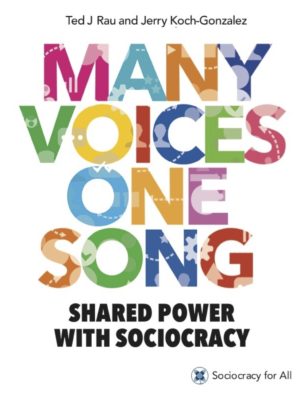This post is not intended to discourage voting. It only addresses the fact that our votes are not as powerful as they are often portrayed by political parties.
The peer-to-peer election process is not about voting. It is designed to identify the best available person to do the job. Those with the most reliable information about the job and about the people qualified to do it are responsible for nominating and electing the best person. The preferred method of deciding on that person is consent by all those present but voting is also an option. Crucial is that the people who are electing the person have something at stake. Their own jobs will be on the line if the peer they chose doesn’t perform their job well enough for the whole electing body to perform well.
The Right to Vote Is Meaningless Without the Right to Nominate

In local, state, and national elections, the right to vote doesn’t mean voters will have good choices when voting. The authority to cast ballots doesn’t include the authority to nominate. Campaigns are so expensive that the political party system controls nominations. They often come down to the lowest common denominator because the better qualified people fail to gain popularity with one faction or another.
Political parties and well funded special interest groups control information. They cloud public opinion and determine first who is nominated and then who will “win.” Voting is irrelevant in this process except at the most mundane level. Which person has turned off the voters the least? Which is the least incompetent? Campaigns try their best to control that which further diverts the focus from qualifications to irrelevancy.
Too Many Voters Means No Meaningful Debate Over Qualifications
The information voters need to make a good decision is hidden in layers of bureaucracy and campaign spin. Since there is no forum in which hundreds of thousands of voters can sit together to debate the arguments. They must align themselves with political parties in hopes that the parties will surface the best people.
The political parties are filled with people who work for their own interests as party officials. Others for a particular party hopeful who is also their boss. Or a special interest group that the hopeful has promised to support, lavishly. Campaign workers take pride in being clever and getting their person elected at all costs because they win if their boss wins.
Voting Starts with a Job Description
The peer election process begins with a job description. When was the last time you participated in an election that started with a job description? As I was writing, I realized I’ve never seen a job description for an elected government office. How do we properly evaluate performance without a job description?
Presenting Arguments in a Forum Where They Can Be Tested
In a peer election nominations are judged not by the viewing audience or the party officials but the people who understand the job best. In a peer election, nominations are made, challenged, and defended. The election is determined on the quality of the evidence, not the quality of the campaign literature. The people in the room who are electing are the same people who know where the bodies are buried, and not buried.
Debate is about understanding and rebutting arguments. It requires skill and intelligence. What we call debates in the United States presidential elections are not debates. They are staged performances in which the candidates have spent hours learning to duck questions and make jabs at the other candidates. Studying their make-up and consulting with experts on wardrobe choices. In turn, we applaud their ability to make quick retorts and not stumble over their words.
Common Aims and Consent
Using consent decision-making requires a common aim. The job description provides that in part. If a body has been able to consent to a job description, they can then move toward the aims stated there when measuring candidates. Freed of the responsibility for financing their next campaign, peers are more likely to be faithful to the needs of the job.
Consent is not the only decision-making method to be used in peer elections. Preference voting is far preferable to majority vote and still avoids the issue of one person or persons not sharing the aims of others. Movement forward is important.
Successive Approximations
If consent can’t be achieved, voting by peers at least ensures that the voters will be more cognizant of reality than the great mass of voters who have little access to accurate information and can’t spend their lives trying to acquire it. Successive approximations is the most we can expect when attempting to adopt more rational practices.
By insisting that everyone has a vote, whether they understand the vote or not, we have made those votes meaningless.
Categories: In Civic Life

